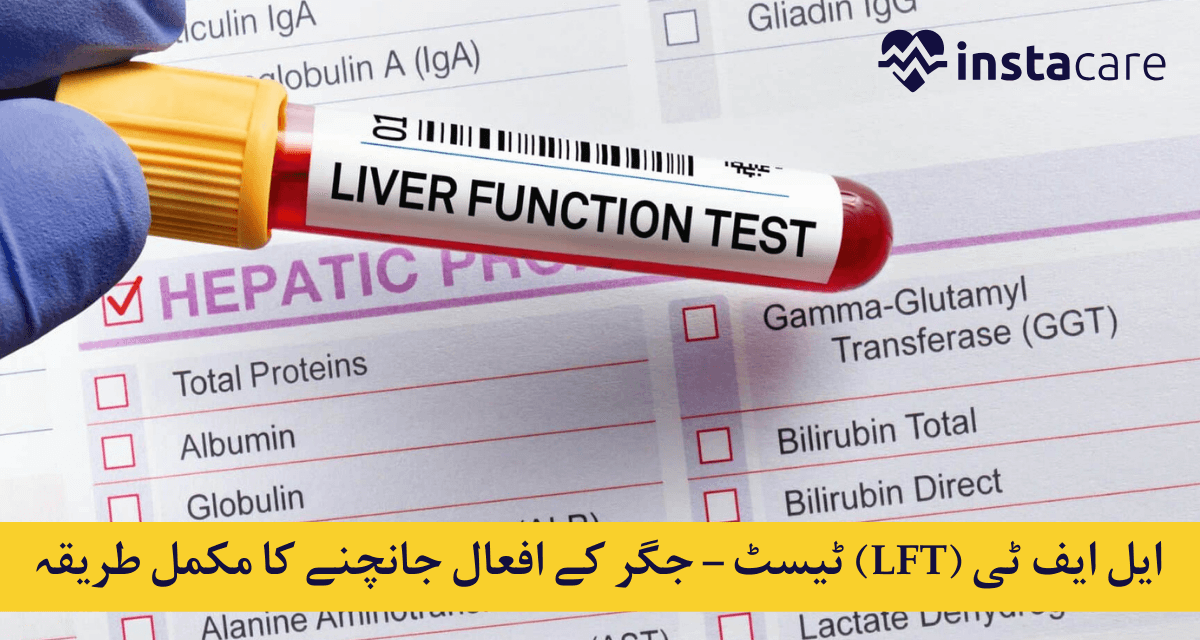Liver Function Test (LFT): What It Is?

What is a Liver Function Test (LFT)?
A Liver Function Test (LFT) is a group of blood tests that assess how well your liver is working. It measures enzymes, proteins, and substances produced or processed by the liver. These indicators help doctors detect liver inflammation, infections like hepatitis, liver damage, and diseases such as cirrhosis or fatty liver.
Why is LFT So Important for Your Health?
The liver plays over 500 roles in the body, from filtering toxins to producing bile for digestion and storing nutrients. Any disruption in liver function can affect your metabolism, immunity, and overall well-being. Liver Function LFTs can detect problems early before they become severe, helping you take timely action.
Components of the LFT Panel
LFT is not just a single test but a combination of several blood measurements:
- ALT (Alanine transaminase): Elevated in liver inflammation.
- AST (Aspartate transaminase): High levels may indicate liver or muscle damage.
- ALP (Alkaline phosphatase): Linked to bile duct issues.
- GGT (Gamma-glutamyl transferase): Sensitive to alcohol and bile problems.
- Bilirubin: Elevated in jaundice.
- Albumin and Total Protein: Measure liver’s synthetic function.
Who Needs a Liver Function Test?
Doctors recommend LFTs if you have:
- Yellowing of skin or eyes (jaundice)
- Abdominal pain or swelling
- Fatigue, nausea, or loss of appetite
- History of alcohol use or hepatitis
- Ongoing medication that may affect liver
- Routine screening for chronic conditions like diabetes or obesity
Common Liver Problems Detected Through LFT
- Hepatitis A, B, or C
- Non-alcoholic fatty liver disease (NAFLD)
- Cirrhosis
- Alcoholic liver disease
- Bile duct obstruction
- Hemochromatosis and Wilson’s disease
Symptoms That May Signal Liver Dysfunction
Sometimes liver issues are silent, but warning signs include:
- Persistent fatigue
- Dark urine or pale stools
- Itchy skin
- Swelling in legs or abdomen
- Easy bruising or bleeding
What Happens During an LFT?
A healthcare provider will draw a small amount of blood, usually from your arm. The sample is sent to a lab where results are available within 24 to 48 hours. No special preparation is needed unless advised otherwise.
Interpreting LFT Results
Your doctor will look at all LFT components collectively. For instance, elevated ALT and AST suggest liver inflammation. High ALP and GGT may point to bile duct issues. Low albumin may indicate long-term liver damage.
Lifestyle and Diet After Abnormal LFT Results
Abnormal results aren’t always serious but may call for changes like:
- Reducing alcohol intake
- Avoiding processed foods and sugar
- Eating a balanced diet rich in fruits, vegetables, and whole grains
- Staying hydrated
- Taking liver supplements if prescribed
Related Tests That May Be Ordered With LFT
- Ultrasound or CT Scan: To visualize liver structure
- Viral Hepatitis Panel: To check for infections
- Liver Biopsy: For a detailed tissue analysis in serious cases
- CBC Test: To monitor overall blood health and detect infections
Importance of Regular Monitoring
If you have liver disease or are at risk (e.g., due to obesity or alcohol), regular LFTs are crucial for tracking progression and response to treatment.
Why Choose Chughtai Lab for Your LFT?
Chughtai Lab offers accurate, timely, and affordable liver function testing across Pakistan. Their experienced technicians and modern equipment ensure quality results, often available within hours. With branches in major cities and online booking via platforms like InstaCare, testing is now more convenient than ever.
Cost of Liver Function Test in Pakistan
The price of LFTs typically ranges between PKR 800 to PKR 2,500, depending on the lab and region. Chughtai Lab offers transparent pricing and may provide discounts when booked online.
Final Thoughts: Don’t Ignore Your Liver
Your liver is a silent worker until something goes wrong. Regular LFTs are a simple yet powerful tool to protect your liver and overall health. Whether it’s for a check-up or due to symptoms, don’t hesitate to book your test today.
Frequently Asked Questions (FAQs)
1. Can I take an LFT on an empty stomach?
LFTs generally don’t require fasting unless advised by your doctor. However, following instructions from your healthcare provider is always recommended.
2. How often should I get a Liver Function Test?
If you have liver disease or risk factors like obesity or alcohol use, you may need testing every 3 to 6 months. Otherwise, annual screening is usually sufficient.
3. Are LFT results affected by medications?
Yes, certain medications like antibiotics, statins, or pain relievers can impact LFT results. Always inform your doctor about the drugs you’re taking.
4. Can liver problems exist even if LFT is normal?
Yes, early-stage liver conditions may not show up in LFT. That’s why clinical symptoms and other diagnostic tools are also important.
5. Is LFT covered by insurance in Pakistan?
Some health insurance plans and corporate packages do cover LFT, especially if ordered by a doctor. Always confirm with your provider.
6. Can I monitor liver health without symptoms?
Absolutely. Many liver conditions show no early symptoms. Routine LFTs are a proactive way to catch liver issues before they develop into serious problems, especially if you have risk factors like obesity, diabetes, or a family history of liver disease.



